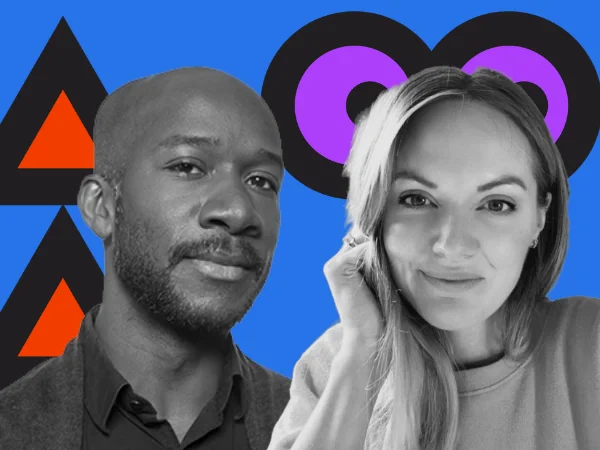Each month we invite two experts from the fabulously well-informed B&C community to take a second look at a recent brand and culture story to help us understand what it means, why it’s important, and, crucially – what can brands learn from it? This month’s special guests James Kirkham, co-founder of Iconic, and Leila Fataar, co-founder of Platform13 talk on the unstoppable rise of K-culture.
🧐 What’s happening
Do you know your Bluejeans from your Babymonster? If not, you might need to brush up on your K-culture.In the last few weeks, Estee Lauder and Gucci have both appointed K-Pop stars as their first Korean global brand ambassadors. Glastonbury organisers also announced that Boyband Seventeen will make history as the first K-Pop band on the Pyramid Stage, marking a major milestone in the decades-long ambition of Korean creative industries to find success in the global entertainment market. Samsung, Adidas, Starbucks and Pepsi have all worked with BlackPink. Brits are going mad for kimchi. But are brands paying enough attention? And how can marketers approach a phenomenon like K-culture?
🤷 Why is K-culture important?
James: Big brands obsess about two things: young people and big numbers. K-Pop has both in abundance. It has commanded a hugely engaged super-rich fandom way above simple eyeballs, which is perfect for brands like Gucci and Estee Lauder. And that grip over so many millions of young people is catnip for marketeers who want to bake their brand into the fabric of culture in the earliest audiences, ensuring their long-term alignment.
Leila: K-pop is an obvious space for fashion and beauty brands. For me, K-culture generally is interesting because the fandom is such an important part of the K-Pop scene. K-pop fans are global, huge, diverse and devoted, I’d say they give the Swifties a run for their money, which is why brands are interested.
🤔 Can it work for brands?
James: Authenticity and legitimacy is everything. This is not a space you can merely dabble in. Like all cultural plays, you need a long-term commitment and not act like a brand that will merely plagiarise or even gentrify. Instead, brands need to cultivate and nurture the space over time. Fans need to see you’re in it for the long haul, adding value.
K-pop itself borrows tropes and pillars so familiar to global pop music consumption, from incredibly viral hooks and melodies perfectly built for a TikTok audience through to the beautiful, high-aesthetic imagery of those artists. Also, look at the huge demand now of Korean cinema, TV, animated features and more. This is K-culture, and K-pop is a mere faction of this.
Breakthrough TV shows like Squid Game delivered weirdness and a niche concept that was so in the margins that it acted as an antidote to the algorithm. The algorithm right now serves us up a beige and vanilla soup, where everything starts to look the same. Disrupting this creates waves of interest.
Leila: I always engage and work with the voices of the community who are shaping their culture to find the right way for your brand to be part of it. You need to understand the role of your specific brand in and what it can do for that specific culture – but you need the right hands who can translate the needs of both corporate and culture. Working closely with these ‘cultural voices’ in the right way for your brand means the creative and comms is already more original, more compelling and more interesting and can cut through the sea of sameness to break those traditional marketing, product and even business-model formulas.
I think lots of brands have jumped on the bandwagon of “let’s be culturally relevant”, thinking of it as an output, instead of an input – where it has so much more value and potential.
Marketers need to be honest. There is absolutely nothing wrong with a brand endorsement deal – just call it that. Helping that culture actually move forward, by finding out what they need and supporting that is a much better approach, especially if you want to be relevant for longer. And if one of the outputs is an ad campaign, that’s cool too, but it has to be part of the co-creation process.
I’m writing a book called Culture-Led Brands which comes out next year and one of the chapters explores how brands jump onto a cultural scene when it’s already in the mainstream, when they should and could be cultivating it at the sub or emerging stage. But that means firstly identifying the relevant signals and then credibly immersing the brand.
🔮 Where do we go from here?
James: There are plenty of wonderful, well-nourished, sustained music scenes underground in the U.K., but they are not well-known. Likewise, there’s a certain globality now through proliferation of social platforms, DSPs like Spotify, and widespread content, as well as keen enthusiasm for DJs and artists to tour further afield.
If you look at Amapiano, (a Nguni word loosely translated to “the pianos”) this was a subgenre of kwaito and house music that emerged in South Africa but is now hugely popular and insanely well-known and consumed from U.K. shores to the US and more.
What’s exciting is that the cultural melting pot of a city or multiple cities nationwide then warp and twist and blend these sounds into something fresh. This is basic music evolution; it is why, for example, rave and drum n bass and jungle and hardcore morphed and shape-shifted from one import into an entirely new export and the world is all the richer for it.
Leila: It’s worth remembering that K-pop sits in the same area as pop music. And now, we’re starting to see the osmosis of K-pop into traditional pop music. Just look at Selena Gomez collaborating with Blackpink. Don’t forget, China is still hugely influenced by K-pop, so for brands wanting to grow into China that’s potentially an opportunity Additionally, K-pop is only part of K-culture, which is where there are huge crossover brand opps. And with AI generated K-Pop bands like Mave gaining real fans, I don’t think we’ve reached K-peak, yet
🙋 You can hear more insight from Leila live on stage in ‘Culture Is Not (Just) a Marketing Issue’ at Brands & Culture in October. If you’re up for taking part in Double Take or have a topic you’d like to see us cover, drop us a note! We’d love to hear from you.



